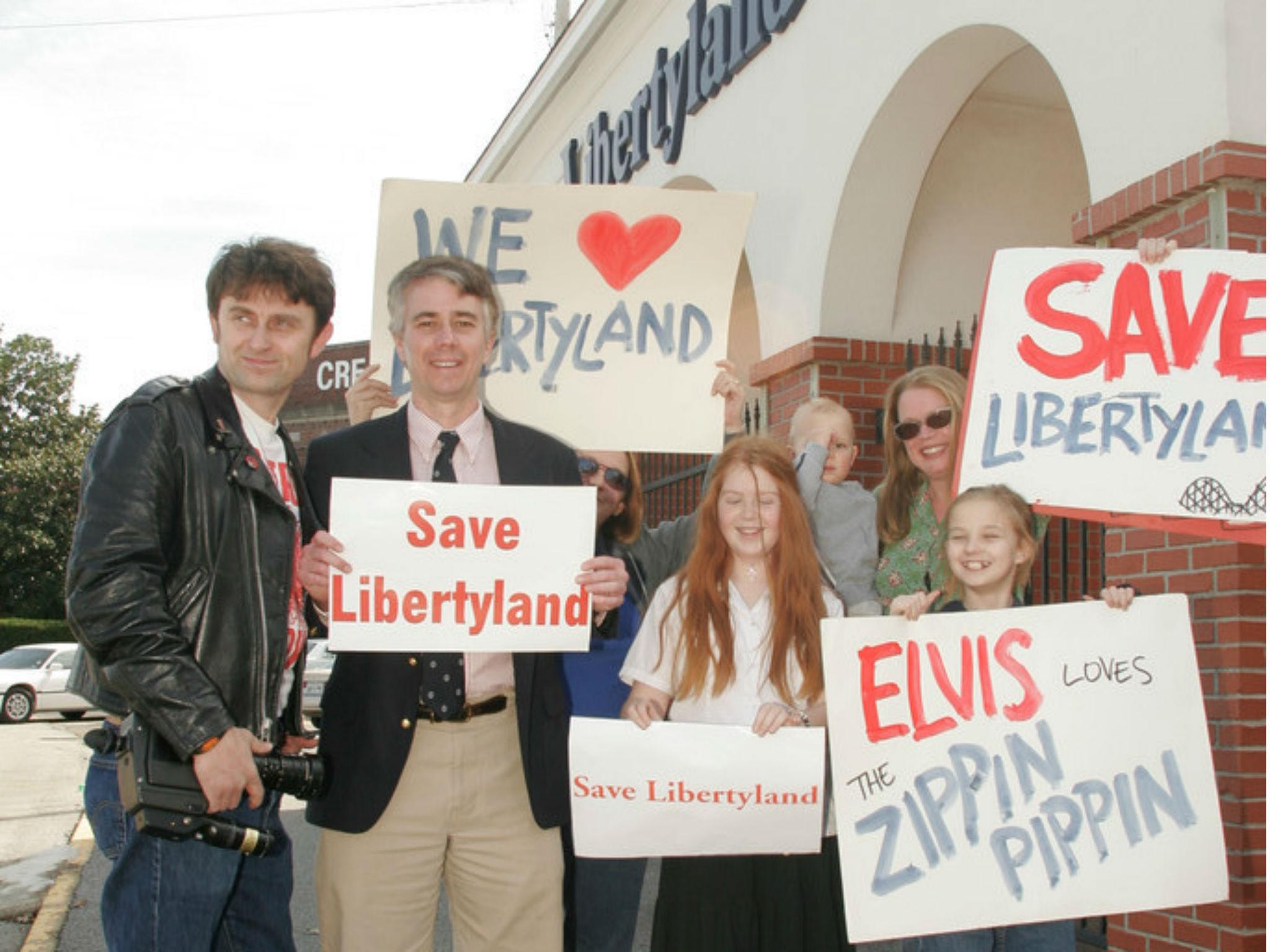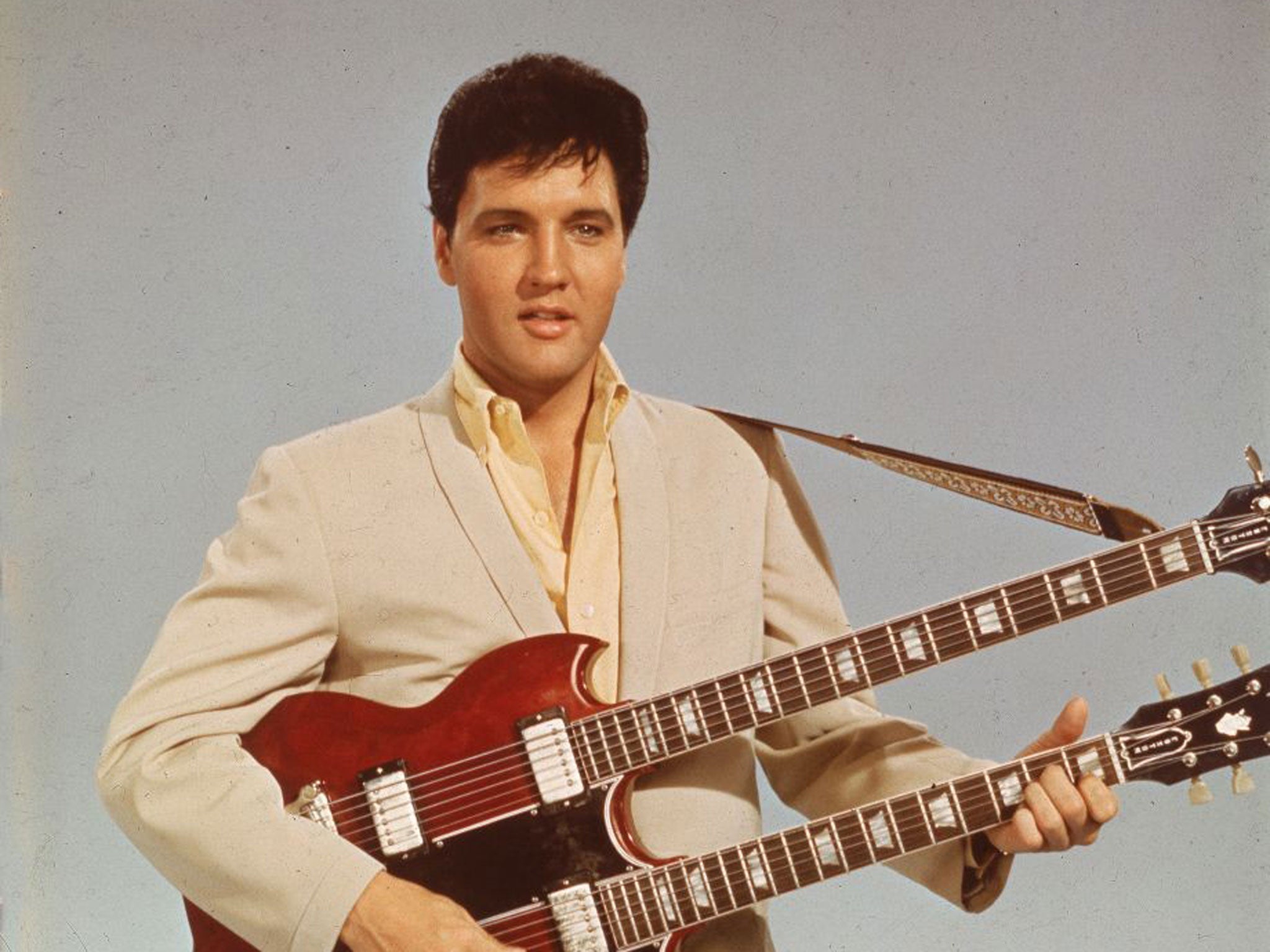Memphis film festival highlights race divide: It’s the divides and anger being exploited by Trump that was more evident on screen
Civil Rights, gentrification and rollercoasters dominate Indie Memphis film festival held in the city of Elvis and Martin Luther King against the backdrop of the US election

Your support helps us to tell the story
From reproductive rights to climate change to Big Tech, The Independent is on the ground when the story is developing. Whether it's investigating the financials of Elon Musk's pro-Trump PAC or producing our latest documentary, 'The A Word', which shines a light on the American women fighting for reproductive rights, we know how important it is to parse out the facts from the messaging.
At such a critical moment in US history, we need reporters on the ground. Your donation allows us to keep sending journalists to speak to both sides of the story.
The Independent is trusted by Americans across the entire political spectrum. And unlike many other quality news outlets, we choose not to lock Americans out of our reporting and analysis with paywalls. We believe quality journalism should be available to everyone, paid for by those who can afford it.
Your support makes all the difference.Two of the biggest icons of 20th Century American culture died in Memphis, Tennessee and their shadows loomed large over the 19th Indie Memphis film festival this week.
Elvis Presley feels like he’s in heartbreak hotel in Mike McCarthy’s Destroy Memphis, a movie that touches upon gentrification, but is mostly about the efforts of local activists to save the singer’s favourite fairground Libertyland roller coaster, The Zippin Pippin, from the bulldozers.
Martin Luther King Jr. is a central tenet of two documentaries at the festival. Pritchard Smith’s The Invaders and Raoul Peck’s I’m Not Your Negro. The Invaders are a Memphis-born Civil Rights group who fought against white supremacy laws. Inspired by Malcolm X and Stokely Carmichael they met with Martin Luther King, questioning non-violence and influencing the minister to take on a more confrontational rhetoric.

The other film featuring King Jr. is Raoul Peck’s incredible I Am Not Your Negro, inspired by the writings of James Baldwin. Arguably the most lyrical, poetic and enlightening documentary of the year, the makes use of 30 pages of notes left by the writer at the time of his death in 1987. The musings are for a proposed book, Remember This House, an account of the lives and brutal murder of his friends, Martin Luther King Jr., Medgar Evers and Malcolm X. Peck immerses these words with footage of Baldwin to give powerful insights into the black American experience.
Many of the original The Invaders were present at the six-day festival, which took place in the shadow of the American election. Like the much talked about social media bubble, the film festival bubbles can often mask divides that are obvious if you look beyond the rhetoric. So where an opinion poll of festival attendees would show a Clinton victory, it’s the divides and anger being exploited by Trump that was more evident on screen.
There are a surprising number of Trump posters on windows of the traditionally Democratic city. But also a look at the festival audience, rather than the films on screen, highlights the racial harmony and the disharmony that still blights America.

For the most part, this was the most diverse make-up of audiences I’ve seen at a festival for a long time, and that is reflected in a schedule with films featuring on-screen talents from all diversities, although most of the directors still remain Caucasian. There was also no fanfare made about race by the programmers, which is hugely admirable and also a sign of more interconnected times, and it’s a view that I would usually follow were it not for the racial make-up of the audience at Destroy Memphis.
I could not help but think of the line from the Public Enemy song, 'Fight the Power', ‘Elvis was a hero to most, but he never meant shit to me.’ Many of the cast and crew were present in the auditorium at the screening I saw, which might explain why this was the least diverse audience at the festival. The activists and proponents in this story were nearly all white, which would not come as a surprise given the history of the city as the focal point of The Civil Rights movement. The film does not mention the state segregation practices and the disenfranchisement of blacks that was in existence for many decades from when, one of America’s oldest wooden rollercoasters was built in the 1910s. Were races allowed to mix and use the ride together before Elvis put his weight on the ride? This is a question the filmmakers don’t ask, nor seem interested in exploring.

The main argument of the film is about poor administration and a desire from the municipal authority to forget Memphis history. The irony. These are pertinent arguments, and it would have been nice for the filmmakers to address why a huge segment of the Memphis population doesn’t have time, or a historical attachment to mourn a roller coaster ride.

Watch Apple TV+ free for 7 days
New subscribers only. £8.99/mo. after free trial. Plan auto-renews until cancelled

Watch Apple TV+ free for 7 days
New subscribers only. £8.99/mo. after free trial. Plan auto-renews until cancelled
Gentrification is a rising spectre in the city that has had several spectacular urban regeneration projects over the past decade. This is a downtown transformed since I last visited Memphis almost a decade ago, and mostly for the good. Although it’s hard not to wonder if this is not just a cosmetic change, with the perfect allegory to this provided by the fact that the famed Memphis trolley transport system has now been shut down, and replaced by busses made up to look like the old trams.

The awards show shone a hilarious light on the complexities of the argument, while on opening night several of The Invaders pointed out that from their perspective nothing had changed, with black business still facing massive struggles to get government contracts.
All these factors just seemed to reinforce the great work that is being done by the Indie Memphis programmers, using art to unite the community and also brining focus to the history of the city. The guest list of invitees also included some of Memphis’ best known filmmakers, including Craig Brewer and Ira Sachs, and the festival showed Paterson, the latest film from perhaps the best known filmmaker from the region, Jim Jarmusch. The work of jury member and The People versus O.J. Simpson scribe Larry Karaszewski was celebrated with a 20th anniversary screening of The People vs. Larry Flynt and also a showing of Man on the Moon, that featured a memorable Q and A with wrestler Jerry Lawyer.
Festival programmer and The New Yorker scribe Brandon Harris, in his first year running Indie Memphis has done a sterling job with a festival that mixes local film, American political historical film, with a selection of films that will be in the Oscar mix, including Kenneth Lonergan’s Manchester by The Sea, Kelly Reichardt’s Certain Women and Garth Davis’ Lion.
Harris has a book coming out next summer, Making Rent in Bed-Stuy, that promises to deal with, and raise many of the questions thrown up by the Indie Memphis festival. The changing make-up of inner cities, the failure to deal with community problems, and how urban planning is benefiting only the few. That such heavy topics were also delivered in an environment of huge fun, with music being played before every screening, and excellent, diverse social gatherings, with dousing of high and low culture, mean that Indie Memphis was a festival very much in his image.
Join our commenting forum
Join thought-provoking conversations, follow other Independent readers and see their replies
Comments